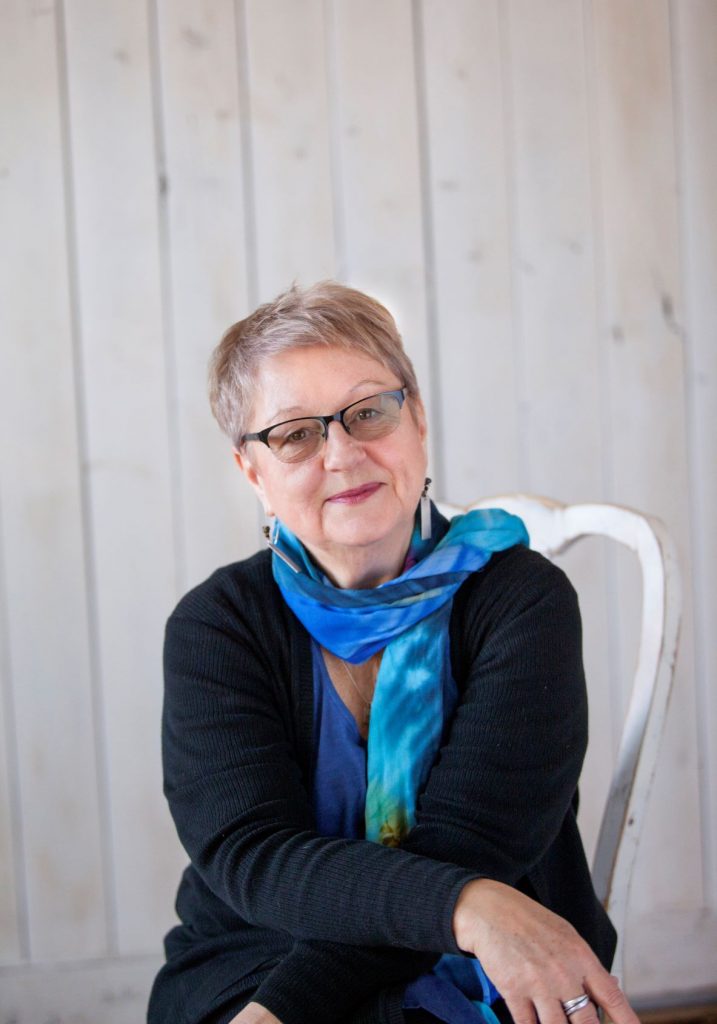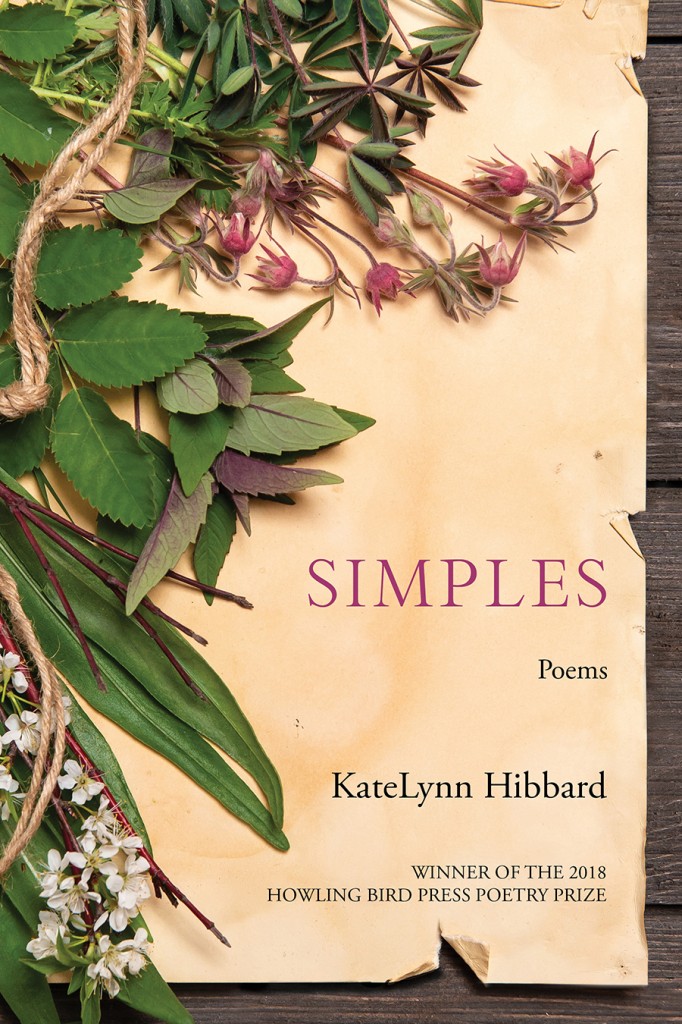
What is it about writing that energizes you?
Three things come to mind, one of which is sort of selfish—that feeling you get when you’re in “the zone” and everything else falls away—it’s just you and the words and the pleasure of creating something that sings. The second is the people you meet—for me, as a writer in community with other local writers, writers I’ve studied with and learned from in the past, as well as a teacher of students who are eager to learn more about the craft. Third is the pleasure of knowing that someone who doesn’t know you or anything about you may pick up your book or hear you read from it and have that unmistakable zing of recognition, of connection. That’s golden.
What are common traps for aspiring writers?
Being in too much of a hurry. Yeah, I know, we could all die tomorrow (more true now than the last time I said that, I’m sure . . .) But so many writers want to send things out immediately after writing them without giving them time to breathe and reveal more of their nature. Closely related is the desire to publish without the desire to read the published work of other writers. Writers who do this are depriving themselves of a way to learn more about how to get their work out into the world, and they are depriving themselves of the chance to be an actual part of the community of writers, who read every chance we get. A third trap that I frequently see in students is a reluctance to revise, which is closely related to the first trap. Revising takes time—words need time to sink in. It’s true that you won’t have that rush of initial creation you got from your first draft, but you’ll have something different that you will probably come to appreciate over time if you stick with writing.
What is your writing Kryptonite?
Lack of focus and an urge to do household tasks or work related to the courses I teach during the time I have set aside to write. Not even setting the time aside sometimes, to be honest, and then being surprised by how little work I have produced.
What other authors are you friends with, and how do they help you become a better writer?
I have been part of an ongoing group of writers for maybe fifteen years now. Current members are Morgan Grayce Willow, Rita Schweiss, Elissa Cottle, and Rondi Atkin. We meet monthly and read each other’s work and appreciate and critique and laugh and recommend books to read and support one another through challenges, both those related to writing and other things. Kate Kysar was a part of this group for a number of years and is still a good friend. Other writers I have met through taking classes and/or doing readings together and consider friends include Kris Bigalk, Paige Riehl, Michael Kiesow Moore, Michael Walsh, Tony Plocido, Tish Jones, Andrea Jenkins, John Medeiros, Steve Healey, and Heid Erdrich. Influential friends from my graduate school years at the University of Oregon are Susan Rich and Phil Memmer, as well as my teacher/mentors Garrett Hongo, T.R. Hummer, and Dorianne Laux . All of these writers have helped me learn how much I still have to learn, and encouraged me that it is worth it to try. Now I’m afraid I’ve forgotten someone, so please forgive my lapses in memory.
Do you want each of your books/stories to stand on their own, or are you trying to build a body of work with connections between them?
The first two books (Sleeping Upside Down, Silverfish Review Press, 2006, and Sweet Weight, Tiger Bark Press, 2012) are connected to some extent by their focus on love, self-discovery, and relationships, as well as a poetic approach that tries to heighten the tension inherent in oppositions, and in some cases, to challenge the way we conceive of things as opposites (male/female, queer/straight, for instance). Simples, which HBP so wonderfully published in 2018, is a complete ringer—it is historical poetry based on the lives of women of the Great Plains around the turn of the twentieth century. I don’t know why that happened. That’s what you get for majoring in history and creative writing, I guess. My fourth book, which is not really a book yet, will likely be more like the first two, dealing with age and the body and pushing against oppositions.
Did publishing with Howling Bird Press change your process of writing?
I don’t know if it changed my writing process, but it made me much more aware of all that goes into the editing process. I’m so grateful for all the energy and expertise and care I received from the student editors and of course the amazing Jim Cihlar.
What have you done since you won the Howling Bird Press prize?
Well, life pretty much has gone on as it had before. I teach full time at Minneapolis College, and in addition to that, I’m trying to write more poems for another collection. I’ve also done some fun readings to promote the book, as well as co-teaching a workshop at the Ghost Ranch education center in New Mexico, entitled “The Poetry of Stone,” where class members wrote poems and learned how to do stone carving for a week. I am giving a socially distanced reading later this month at an artist’s salon called “The River’s Edge” in Minneapolis, and I’ll be appearing in an online reading sponsored by the Syracuse, New York, Downtown Writer’s Center in October.
As a writer, what would you choose as your mascot?
This is a hard question. I think some kind of perennial Midwestern plant, like bee balm, that blooms profusely for a few months, then dies back and goes dormant for half the year, but during that time, rich things are fermenting beneath the snow.
What kind of research do you do, and how long do you spend researching before beginning a book?
Simples took me about twelve years from its conception to its completion. My initial inspiration was a bit I heard on The Writer’s Almanac about the great locust invasion of the 1870s. That sent me down an insane rabbit hole of books about locusts, about Minnesota history, about women and settlement on the Great Plains, about Native people’s role in helping settlers and how they were displaced by settlers. I read a manuscript at the Minnesota Historical Society on a woman missionary in Northern Minnesota. I read prayer books and Bible verses. Eventually, based to some extent on my reading, the focus of the book became how women coped with the exigencies of life on the prairie. I can’t really recall a time when the research stopped and the writing began—both activities fed off of each other. I did have to make myself stop researching periodically, because it is sometimes tempting to think that because you have read so much, you have written an equal amount, and that, of course, is not the case.
I also do brief research for non-historical poems, which usually involves a short dive down the Google hole.
What did you edit out of this book, Simples?
I don’t think I actually took any poems out, but I was helped immensely by the suggestions I got about reordering the collection. I also changed the point of view of one or two poems based on editorial feedback, and added some end notes to make the historical context clearer for readers.

Simples is now available on Amazon as an e-book. Check it out here.
